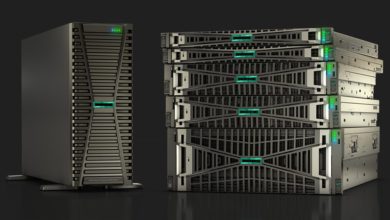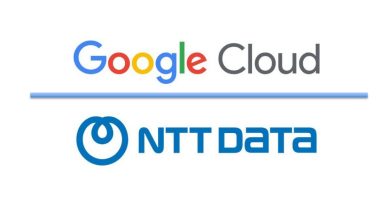Red Hat Reinforces Open Source Commitment to Fuel Malaysian Digital Transformation

Recently, Red Hat organised a small-scale event at the Pavilion Hotel in Bukit Bintang, Kuala Lumpur, to exhibit some of their new and upcoming software applications in addition to announcing the winners of the Red Hat APAC Innovation Awards 2023 for Malaysia. The event also featured an informative media briefing led by Tammy Tan, Red Hat Malaysia’s Country Manager, alongside distinguished guests; Megat Mohammad Faisal, CTO of Bank Muamalat Malaysia; Tat Chong Koh, CTO of Petronas Dagangan; and Prof. Dr. Ho Chin Kuan, Vice Chancellor of Asia Pacific University (APU).
 With generative AI adoption becoming prevalent among businesses and industries, it’s evident that AI is determined to keep up with the pace. Tammy Tan set the tone for the briefing by unveiling four innovative AI-driven solutions developed by Red Hat, with the aspiration to elevate the experiences of the open-source community, businesses, and industries in the domains of cyber resilience, automation, and software development. These were:
With generative AI adoption becoming prevalent among businesses and industries, it’s evident that AI is determined to keep up with the pace. Tammy Tan set the tone for the briefing by unveiling four innovative AI-driven solutions developed by Red Hat, with the aspiration to elevate the experiences of the open-source community, businesses, and industries in the domains of cyber resilience, automation, and software development. These were:
OpenShift AI:
- Provides a standardised foundation for creating AI/ML.
- Delivers consistent, easy-to-use, and cloud-to-edge deployment options.
- Provides several optional technology partner offerings including Anaconda, IBM Watson Studio, Intel OpenVINO and AI Analytics Toolkit, NVIDIA AI Enterprise, and Starburst. It also provides access to 30 additional AI/ML-certified partners as part of the OpenShift ecosystem.
Ansible Lightspeed:
- Includes and brings the power of IBM watsonx Code Assistant; a generative AI service to help developers create Ansible content more efficiently.
- The rapid construction of automation code.
- Consistent and accurate automation, and novice-friendly.
Trusted Software Supply Chain:
- Enhance organisations’ resilience to vulnerabilities.
- Allows users to quickly and efficiently code, build and monitor their software using proven platforms, trusted content, and real-time security scanning.
- Includes two new cloud services; Red Hat Trusted Application Pipeline and Red Hat Trusted Content.
- Red Hat Trusted Application Pipeline provides security-forward Continuous Integration/Continuous Delivery (CI/CD) that helps simplify the adoption of the process, technologies, and expertise that Red Hat uses to build production software.
- Red Hat Trusted provides users with enterprise-hardened trusted content and knowledge about open-source packages in users’ applications.
Event Driven Ansible:
- Provide the capability to automate any time-consuming task and respond to any conditions change in the IT domain.
- Has the capabilities to process discrete intelligence in the IT environments, determine appropriate responses, and execute automated actions to address or remediate the event.
- Boost speed and responsiveness rates.
- Ensure better consistency.
Tan added that AI is poised to become an integral component of Red Hat’s “new way of doing things,” although its complete integration may require some time. In the meantime, Red Hat is proactively sharing its latest AI-driven innovations as a progressive step forward in the dynamic landscape of IT.
Red Hat’s CentOS Pivot: Is It Still Open Source?
Red Hat has long held a prominent position as a staunch advocate for open-source principles. However, when the company was acquired by tech giant IBM in 2018, concerns arose about the company’s commitment to the open-source ethos. More recently, the contentious policy changes that Red Hat implemented for RHEL and CentOS sparked intense debates within the open-source community, appearing to run counter to Red Hat’s core values.
Tan offered a comprehensive explanation of the situation, stating, “Previously, CentOS used to derive from RHEL, essentially taking in all the upstream contributions and then selectively filtering them, with CentOS essentially being a downstream product of RHEL. The challenge we encountered was that Red Hat wasn’t benefiting from CentOS’ innovations. To address this, we’ve shifted our approach to push these contributions upstream, requiring CentOS to actively collaborate with the broader community rather than solely extracting from Red Hat.”
She affirmed that Red Hat’s commitment to open source remains unwavering. The company has no intentions of venturing into closed or licence-based services. The adjustment made with CentOS aims to ensure that contributions are made to the open-source ecosystem rather than simply forking from RHEL. “Red Hat will continue to be Red Hat. We will steadfastly uphold our open-source ethos, and everything we do will be fed back into the community, without exception,” she reassured customers.
Bank Muamalat and Petronas Dagangan Digital Transformation Success Stories
As part of the Red Hat APAC Innovation Awards 2023, Red Hat also dedicated a moment to acknowledge the remarkable accomplishments of Bank Muamalat Malaysia and Petronas Dagangan. According to Red Hat, these organisations have demonstrated remarkable utilisation of Red Hat solutions to drive innovation, showcase their ingenuity, and enhance customer experiences in an ever-evolving business landscape.
Executives from both companies were present to elucidate how their adoption of Red Hat has played a pivotal role in their digitalisation journeys.
 Koh commenced the discussion by highlighting the company’s success story, emphasising Petronas Dagangan’s full embrace of cloud services migration. He also shared the distinctive situation within the petrol station industry, which mandates substantial utilisation of edge computing.
Koh commenced the discussion by highlighting the company’s success story, emphasising Petronas Dagangan’s full embrace of cloud services migration. He also shared the distinctive situation within the petrol station industry, which mandates substantial utilisation of edge computing.
“[We have] a network of 1,000 plus petrol stations nationwide, some of them in very rural areas where reliable, consistent, and fast connection to the cloud is not immediately available. That’s where connectivity comes in. We have been a user of CentOS in the past, where it’s deployed at all our stations,” he said.
Security is also of utmost importance. Koh gave an example of the supply chain attacks on SolarWinds where hackers targeted vulnerabilities within the digital supply chain, which has prompted Petronas Dagangan to enhance their overall cybersecurity, upskilling, and uptooling initiatives.
He explained, “That’s where our transition from community-based, open-source operating systems into one that’s enterprise-based, supported by Red Hat directly started that journey. With modern cybersecurity practices as well, the velocity in which we now need to deploy patches and software upgrades to our 1,000 sites is now higher.”
 Subsequently, Megat delved into Bank Muamalat’s digital transformation journey, which started during the early days of the COVID-19 outbreak in the year 2019/2020.
Subsequently, Megat delved into Bank Muamalat’s digital transformation journey, which started during the early days of the COVID-19 outbreak in the year 2019/2020.
“At the time, we [Bank Muamalat] still relied on monolithic technology. Our co-banking system is all in one place, all resided in one system. What happened was that we started to unbundle it, by moving out certain applications into microservices” shared Megat.
Megat also explained how OpenShift AI helped Bank Muamalat to quickly, and cost-efficiently integrate both internal and third-party applications for their future partners, business partners and regulators. Thus, providing Bank Muamalat with the time and capacity to tackle their customers’ needs in time.
During his closing statements, Megat shared Bank Muamalat’s efforts to provide better banking services to everyone, “So, this is what Bank Muamalat currently trying to tackle. Based on our transformation journey and our motto which is “better life together” — we will continuously improve our response speed in addressing customers’ need, which in turn will enhance their banking experience. This is the driving force behind our digital transformation journey with Red Hat.”
Memorandum of Understanding: Partnership Between Red Hat and APU
As the briefing neared its conclusion, Asia Pacific University (APU) solidified its collaboration and commitment to Red Hat by formalising the partnership through the signing of a Memorandum of Understanding (MoU), with a specific focus on key areas:
- Knowledge exchange in DevOps, cloud computing, software testing, cybersecurity, and application development.
- Curriculum benchmarking.
- Industry and internship opportunities
- Joint certification initiatives for students.
- Training opportunities for academic staff.
 Prof. Dr. Ho Chin Kuan, APU’s Vice Chancellor
Prof. Dr. Ho Chin Kuan, APU’s Vice Chancellor
Prof. Dr. Ho Chin Kuan, APU’s Vice Chancellor, shared a few words on how the MoU is expected to help change the way students learn. The partnership between APU and Red Hat will delve into the utilisation explore the use of Ansible and OpenShift, exploring how these technologies can empower students with valuable skills in high-demand areas like DevOps, and how it can help train students, thus making them more employable after graduation.
“So that is where DevOps come in. I think this partnership is very timely as we can explore the use of Ansible and OpenShift to look at how we can train students for when they graduate. Let’s say they go and apply for a job at a bank; they will be employable because they already have the right skill sets, so there’s no need for retraining. And one of the advantages is that we have quite a huge body of international students – meaning that when we properly train the students, not only can they serve the Malaysian market, but they also the international market.”




